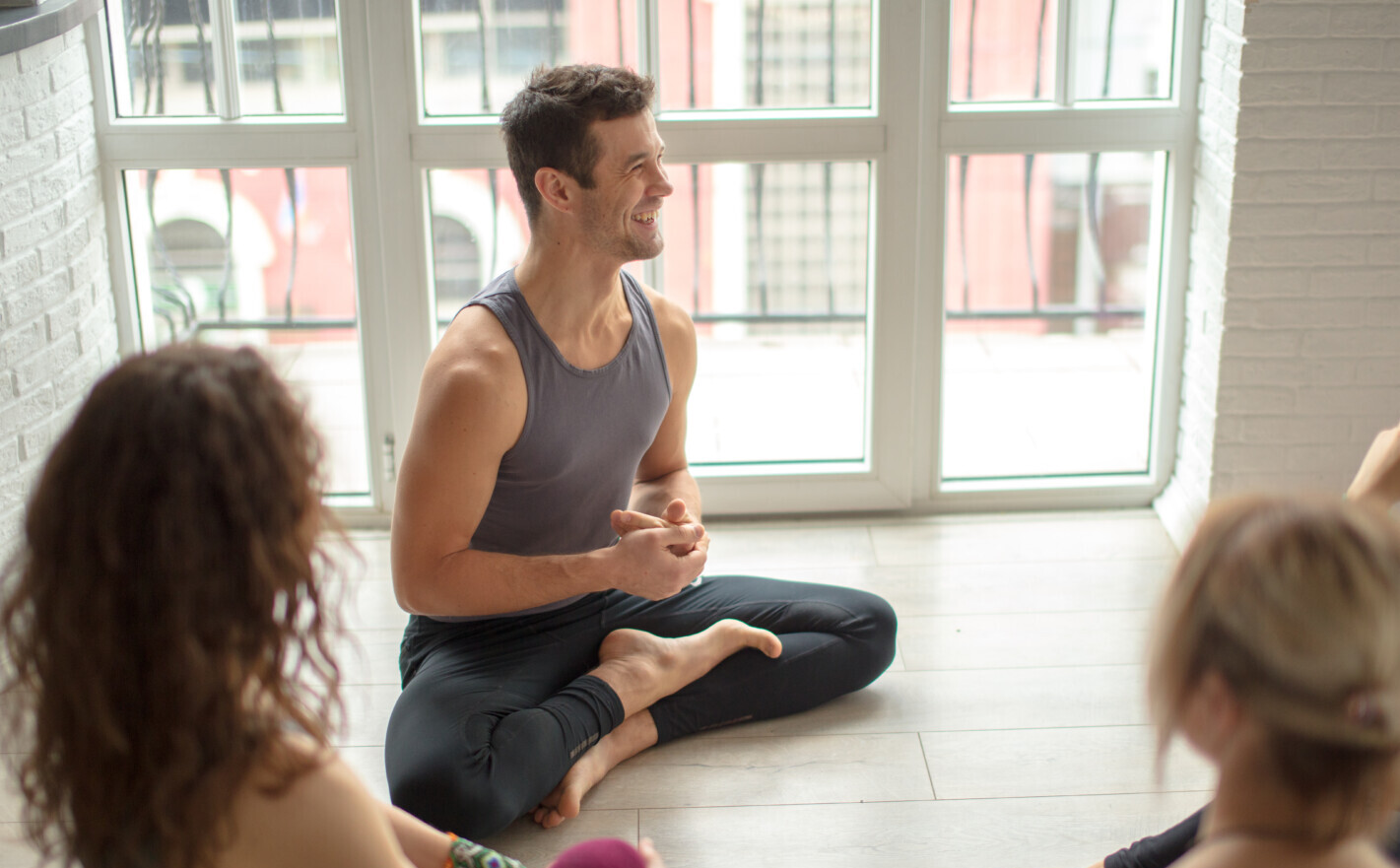Don’t “train” to be a yoga teacher. Start by finding your personal inspiration.
To train is defined by Mariam-Webster as: A) to teach so as to make fit, qualified, or proficient, or B) to form by instruction, discipline, or drill.
Given that yoga classes in studios and fitness centers have become the most popular way to share yoga, yoga teacher training is often designed to prepare teachers for instructing in this format. My guess is that the majority of certified yoga teachers, educated by large commercial yoga studios, have been “trained” with this definition in mind. This means a huge focus on developing the teacher’s ability to verbally coordinate and physically demonstrate the postures and movements for a group of students. Teacher training designed for this purpose includes extensive instruction, disciplined practice, memorization of the postures, and drilled rehearsal in the instructor’s role. All of this is designed to produce teachers who are proficient in getting up in front of and leading large classes of people.
But should this idea of “training” to teach group classes be the primary focus for aspiring yoga teachers?
May I suggest a different primary focus to becoming a yoga teacher? If you want to teach to classes of students, or just want to go deeper into a personal yoga practice, I believe the priority is the same. The journey of a yoga teacher is one that starts with going inside and finding healing, gratitude, and meaningfulness for yourself. These magical teachings may be self-reflections, wisdom, personal practices, and truths you discover by exploring a very broad set of yogic knowledge presented to you. After discovery, you become the test subject, experimenting with different practices and wisdom that might work for you, and over time discovering things that make a difference in your experiences and wellbeing. This is the most critical element to have as a possibility within the yoga teacher training that you select, and is what should be the primary focus becoming a yoga teacher.
So why an inward primary focus first? Let’s reflect on what happens naturally after you discover something that makes your life so much better. When you care about others, you can’t keep helpful discoveries away from other people. In fact, if it is really making a difference for you, the desire to transfer the knowledge has such force and enthusiasm that you may not be able to stop it from coming out. At this stage becoming more effective at sharing knowledge and instructing has a critical place. Good teaching is the ability to transfer these ideas in the most helpful, non-attached, supportive, accessible, customized, and uplifting ways possible.
An organic and natural process for your teaching development is 1-1 sharing of what you are learning about yoga with friends and loved ones. This process 1-1 can be natural verbal sharing of what is working for you, a transfer of your energy of enthusiasm, and an offering to demonstrate and practice with them if they would like to try it with you. You will find yourself naturally practicing your delivery of the wisdom you have found, realizing it may not work for others in the same way it worked for you, and that it may need to be customized or adapted. Sharing 1-1 with those close to you allows for detailed observation of what does and doesn’t work and learning of what might be most helpful to modify as it is shared. This isn’t exactly in line with the above definition of training, but it is incredibly important to your development as a teacher.
And if you are destined to teach larger groups of people, opportunities to rehearse in the instructor’s role are very important too. These opportunities to lead large groups while training help you prepare for auditions and reduce any potential anxiety when getting up in front of your first big class as a teacher. This should be part of structured practicum within your training program you chose, but in almost all cases it will be good to create additional rehearsal opportunities for yourself. This might be accomplished by taking ownership of coordinating extra rehearsal sessions with your fellow students during the training program, or starting small free classes out of your home or a community center right after graduation. For many teachers it may take years to hone large group teaching skills, so if you are on this path you should get as much rehearsal as possible, as early as possible.
But if large group teaching can take years of practice to refine, when will you really become a yoga teacher? It isn’t when you are certified, and it isn’t when you instruct your first big class of your own. In my opinion you become a yoga teacher the moment you develop an understanding about what really can make a difference, and you care enough about another person enough to share it with them.
In summary I am suggesting to not “train” to teach yoga with a primary focus on instruction, discipline, and drill. Start with discovery and personal exploration, find what works for you through personal practice, begin sharing and learning how to adapt what works for you with people you care about, and along the way take all the opportunities to prepare for larger classroom settings and hone your large group teaching skills.
Good luck in your teaching journey!

